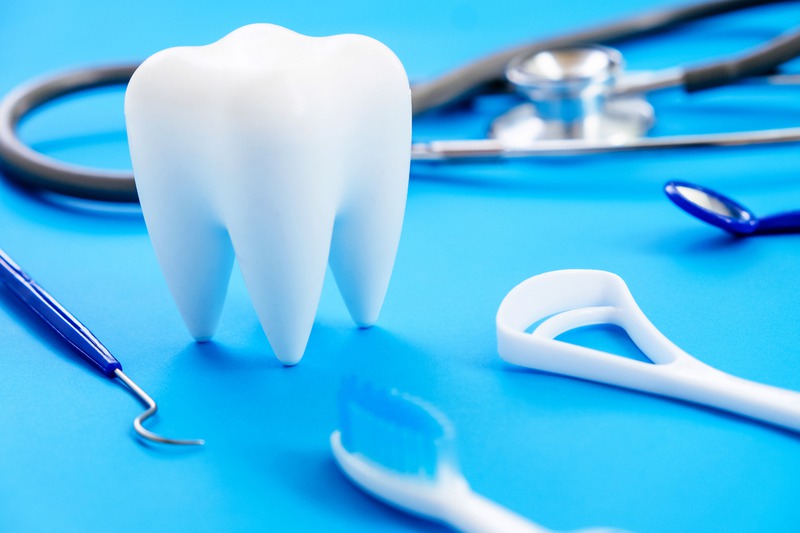What Should I Do During a Dental Emergency?
Experiencing a dental emergency can be distressing, and it’s crucial to know how to react promptly and effectively. Whether it’s a sudden toothache, a chipped tooth, or a knocked-out tooth, having a plan can make a significant difference. This article aims to guide you through the essential steps to take during a dental emergency, offering tips on prevention and subtly highlighting the importance of professional dental care services.
Steps to Follow During a Dental Emergency
When faced with a dental crisis, having a clear action plan can help manage the situation. Here’s a guide on what you should do:
-
Remain Calm: While it may be easier said than done, staying calm allows for better decision-making and control of the situation.
-
Evaluate the Emergency: Identify the type of dental problem you’re dealing with to take the next steps appropriately.
-
Contact Your Dentist: Get in touch with your dentist to seek professional advice or an immediate appointment.
-
Manage Pain and Discomfort: Utilize over-the-counter pain relief to ease discomfort and employ cold compresses as needed.
-
Implement Immediate First Aid: For any bleeding, apply gauze. For a knocked-out tooth, rinse it gently and keep it moist in milk or a saline solution.
Types of Dental Emergencies and How to Handle Them
Diverse emergencies require different approaches. Understanding these can prepare you better for various situations:
-
Toothache: This can indicate something serious; rinse with warm water and place a cold compress to reduce pain and swelling.
-
Cracked or Fractured Teeth: Rinse with warm water and see a dentist as soon as possible to prevent further damage.
-
Knocked-Out Tooth: Recover the tooth if possible, hold it by the crown, and try to place it back in its socket or store it in milk until you reach dental care.
-
Lost Filling or Crown: Use clove oil on the area for pain relief and avoid using the affected tooth until you see a dentist.
-
Dental Abscess: Rinse your mouth with salt water to ease discomfort and seek immediate dental attention.
Visiting a Local Dental Clinic for Emergencies
Reaching out to a local dental office in Shelby promptly can be vital in handling emergencies effectively. Immediate intervention by experts can often make a difference between saving a tooth and losing one. Taking proactive steps can help lower the risk of encountering dental emergencies. Implementing these preventive measures serves as your best defense against unexpected dental issues. By focusing on consistent care and caution, you can maintain better oral health and avoid painful situations.
Regular Dental Visits
Regular dental visits are essential for maintaining oral health. Consistent check-ups allow your dentist to identify potential issues early. When problems are caught in their initial stages, intervention can occur before they escalate into more severe complications.
-
Schedule dentist appointments every six months to ensure thorough evaluations.
-
To stay informed, discuss any concerns you have during your visits.
Maintain Good Oral Hygiene
Maintaining good oral hygiene is crucial for a healthy mouth. Daily brushing and flossing help keep teeth and gums in excellent condition. These habits significantly reduce the risk of dental emergencies such as cavities and infections.
-
Brush your teeth at least twice a day with fluoride toothpaste.
-
Floss daily to remove food particles and plaque from between your teeth.
Use Mouthguards
If you engage in sports or physical activities, using mouthguards is a wise decision. These protective devices help shield your teeth from injuries during games or competitions. Wearing mouthguards minimizes the chances of accidental damage to your teeth.
-
Talk to your dentist for recommendations on custom-fit mouthguards.
-
Ensure the mouthguard is comfortable and properly fits your mouth.
Be Cautious with Hard Foods
Being cautious with hard foods can help prevent dental emergencies. Many people accidentally crack or damage their teeth by biting down on hard snacks. By being mindful of what you eat, you can decrease the likelihood of such accidents.
-
Choose softer food options whenever possible to avoid potential risks.
-
Cut hard items into smaller pieces to make them safer to consume.
Routine Dental Cleaning
A preventive measure that proves invaluable in reducing emergency visits is regular cleaning. Engaging in scheduled dental cleaning not only prevents decay and disease but also contributes to overall oral health. Identifying issues during these cleanings can prevent costly and painful emergencies, ensuring long-term oral care and peace of mind.
Avoid Harmful Habits
Avoiding harmful habits contributes to overall oral health. Smoking and excessive alcohol consumption can have adverse effects on your gums and other oral tissues. Steering clear of these habits helps maintain a healthier mouth and reduces the risk of emergencies.
-
Seek support if you need help quitting smoking or reducing alcohol intake.
-
Focus on adopting healthier lifestyle choices that benefit your dental health.
By following these preventive measures, you can protect your smile from potential dental emergencies. Taking the time to care for your teeth and gums pays off in the long run, leading to better oral health and fewer issues.
Caring for Children During Dental Emergencies
Children are prone to injuries and knowing how to handle dental emergencies for them is crucial. When facing such situations, it’s essential to stay composed and assess the injury efficiently. Consulting a professional, like a dedicated dentist for kids, who understands children’s unique needs, can ensure they receive the best care. Always try to calm the child to avoid adding stress to the situation.
Closing Remarks
In the face of a dental emergency, taking prompt and informed actions is crucial to safeguarding oral health. Calm and timely measures, alongside expert advice, can significantly improve outcomes. Incorporating preventive strategies further enhances the ability to manage and avoid emergencies. By understanding both immediate response techniques and ongoing care practices, individuals can feel well-equipped to handle dental emergencies when they arise.


